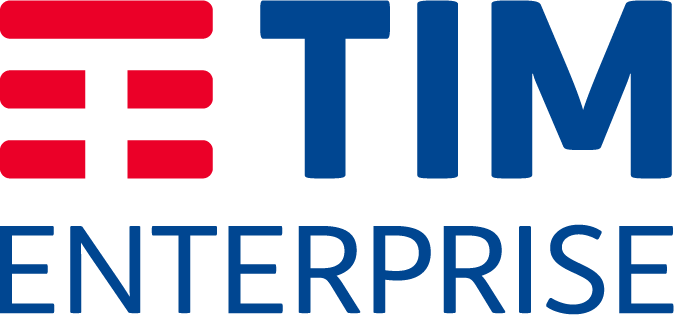The Changing Landscape of Telecom Procurement in Europe
Today’s global businesses demand seamless enterprise connectivity across borders. The rise of remote work, IoT integration, and a renewed focus on network resilience make robust telecom partnerships indispensable. According to the GSMA Mobility Report 2024, over 64% of European enterprises will list mobile-first unified communications as a top IT investment priority by 2025. Multinational companies in Europe have also seen a 27% reduction in total telecom costs after consolidating fixed and mobile voice onto cloud-based platforms (IDC Europe Telecom Trends, 2025).
Alliances such as FreeMove Alliance—which includes Deutsche Telekom, Orange, TIM, Telia, and new partners like du in the Middle East—now serve as critical bridges for enterprise customers seeking global reach with local expertise. With coverage extending to over 125 countries, these networks empower decision-makers to secure high-value contracts that support evolving business needs, compliance mandates, and uninterrupted connectivity.
Key Challenges for Procurement Leaders
Multi-country telecom contracts are far more than price negotiations. Today’s contracts must address:
- National regulatory differences that can impact data sovereignty, privacy, and lawful intercept requirements from Germany to the UAE.
- Cultural and linguistic diversity among providers and end users, adding complexity to contract standardization and incident resolution.
- Rapid technology adoption—including 5G, private networks, and SD-WAN—requiring flexible service level agreements (SLAs) that anticipate future upgrades.
- Roaming solutions and cross-border collaboration needs that are unique to distributed and mobile global workforces.
Best Practices for Multi-Country Negotiations
As the telecom ecosystem evolves, procurement leaders can maximize value and reduce risk by following these proven approaches:
- Centralize and harmonize contract governance: Appoint a global procurement lead or a cross-functional steering committee to coordinate contract strategy. Lean on partners like FreeMove Alliance and Bridge Alliance, who offer a single point of management for pan-European and international contracts, simplifying compliance and reporting.
- Leverage buying power and scale: Pool demand across subsidiaries and countries to negotiate volume discounts, data bundling, and custom SLAs. Utilize cloud-based platforms and unified communications—such as Teams Phone Mobile, championed by FreeMove Alliance members—to consolidate services, monitor usage, and control telecom spend more efficiently.
- Mandate end-to-end service transparency: Insist on granular, real-time reporting for all contracted services and usage, including mobile voice, data, and IoT solutions. This oversight is essential for managing roaming costs, monitoring quality of service, and identifying areas for network optimization across diverse markets.
- Demand future-proofing in SLAs: Ensure that agreements include provisions for rapid tech adoption and upgrades—such as seamless 5G rollout or integration of AI-based network analytics—as these innovations become market standards. Flexible SLAs that anticipate change help safeguard long-term investments.
- Foster a partnership mindset, not just a supplier relationship: Engage telecom partners as co-innovators. Regularly consult with FreeMove Alliance members—like Deutsche Telekom, Orange, and Telia—to align on technology roadmaps, compliance updates, and support structures. Open dialogue streamlines cross-border issue resolution and boosts network resilience.
Unlocking Business Value with Global Mobility
A strategic procurement plan should consider the unique advantages of large-scale alliances. For instance, the partnership between FreeMove Alliance and du now enables European and Middle Eastern multinationals to tap into a centralized management hub for all enterprise mobility contracts—ensuring standardized support, unified security protocols, and harmonized roaming solutions for employees in over 100 countries.
With network coverage and service quality underpinning digital transformation, leveraging relationships with trusted partners—such as Orange in 29 countries or Swisscom’s award-winning local expertise—has become crucial. This approach delivers:
- Consistent quality and compliance for end users wherever they operate.
- Cost efficiencies via global contracts, managed mobility, and bundled solutions tailored to organizational scale.
- Access to advanced features, such as native mobile number provisioning, integrated analytics, and proactive network troubleshooting—ensuring high performance during cross-border collaboration and remote work scenarios.
Case in Point: FreeMove Alliance’s Unified Solutions
The strength of collaborative alliances is illustrated by FreeMove Alliance’s impact:
- Its members enable multinational customers to consolidate procurement, streamline service monitoring, and support global mobility strategies at scale.
- Recent expansions, such as the new partnership with du in the UAE, further extend the reach and capabilities available to European enterprise clients, allowing a unified approach to both advanced and emerging markets.
- The Alliance’s deep integrations with partner operators like BT, Eir Evo, Odido, NOS, and Bridge Alliance provide comprehensive coverage, local regulatory insight, and tailored solutions for every geography and sector.
Strategic Reflection for Tech Leaders
For CIOs, CTOs, and global procurement heads, the imperative is clear: multi-country telecom contracts are no longer just procurement exercises, but linchpins of global business strategy. As workforce mobility, digital security, and cross-border operations accelerate, your ability to negotiate, execute, and manage these contracts will define enterprise resilience and growth.
Embrace a collaborative, forward-looking approach—one that leverages the power of trusted alliances, deepens cross-functional buy-in, and builds adaptability into every agreement. To further enhance your organization’s enterprise connectivity, consider joining the vibrant FreeMove Alliance community, where peers and partners are working together to set the next benchmarks for global mobility and telecom innovation.






